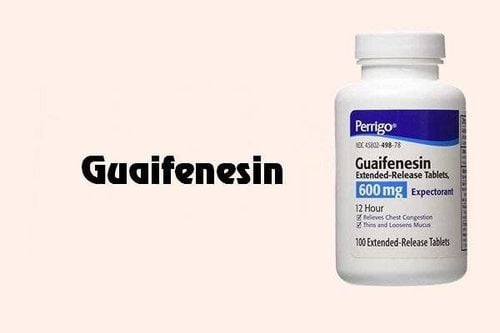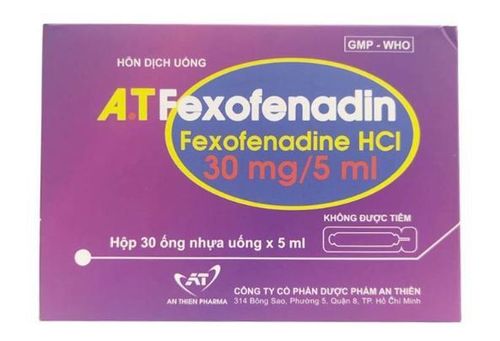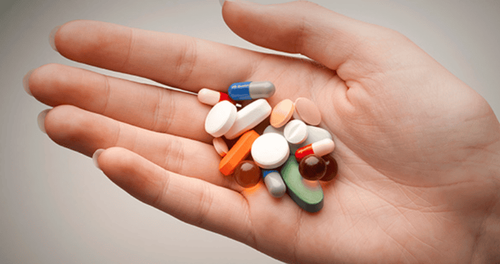This is an automatically translated article.
Cidetuss medicine is used in the treatment of cough with phlegm, cough due to sore throat. So what is Cidetuss? How to use it? Find out more information about the use of Cidetuss in the article below.
1. What is Cidetuss?
Cidetuss drug is prepared in the form of soft capsules containing the main active ingredients are Guaifenesin 100mg, Cetirizine 2HCI 5mg, Dextromethorphan HBr 15mg. In particular, Guaifenesin has an expectorant effect by stimulating the secretion of respiratory secretions and volume, reducing the viscosity in the trachea - bronchi, making the cough reflex and expelling sputum easier. Cetirizine is a 2nd generation antihistamine that treats allergies but does not cause drowsiness at pharmacological doses.
Dextromethorphan acts on the cough center in the medulla oblongata, helping to relieve cough caused by mild irritation of the bronchi and pharynx.
2. What effect does Cidetuss have?
The use of Cidetuss medicine is to treat cases of cough with phlegm, caused by irritation of the throat and bronchi when having a cold or when breathing irritants in the respiratory tract.3. How to take Cidetuss How to take Cidetuss: Take it before or after a meal.
Dosage:
Adults and children from 6 years of age and older: 1 tablet x 2 times/day; Children from 4 to under 6 years old: take 1 tablet x 1 time/day. 4. Contraindications of the drug Cidetuss The drug Cidetuss is contraindicated in the following cases:
Hypersensitivity to any component of the drug; Pregnant and lactating women; Children under 4 years old; Are taking monoamine oxidase (MAO) inhibitors. 5. Notes when using Cidetuss When using Cidetuss, it should be noted:
Caution when using Cidetuss for patients with chronic persistent cough in smokers, asthma, emphysema, chronic bronchitis count, emphysema or cough with too much phlegm; Adjust dose in patients with hepatic impairment, moderate and severe renal impairment or patients on hemodialysis; Avoid use in people with porphyria due to Guaifenesin ; Use with caution in patients at risk or with respiratory depression; Avoid alcohol and other CNS depressants while being treated with Cidetuss; Abuse of drugs containing guaifenesin can cause kidney stones; Dextromethorphan abuse and dependence have been rare, especially with high doses. During the course of taking the drug, the patient needs to be sufficiently rehydrated. Do not arbitrarily use the drug for more than 7 days without a doctor's prescription; Driving, operating machinery: Avoid using the drug for patients who drive vehicles and operate machinery because the drug can cause drowsiness and somnolence; Pregnancy: Currently, studies on the use of the drug in pregnant and lactating women are incomplete, so the drug should be avoided in these subjects. 6. Undesirable effects of the drug Cidetuss Side effects of Guaifenesin: Dizziness, headache, diarrhea, vomiting, nausea, abdominal pain, skin rash, urticaria. Can cause kidney stones if misused; Side effects of Cetirizine: somnolence (common), fatigue, dry mouth, sore throat, dizziness, headache, nausea; Side effects of Dextromethorphan: Fatigue, dizziness, tachycardia, flushing.
Please dial HOTLINE for more information or register for an appointment HERE. Download MyVinmec app to make appointments faster and to manage your bookings easily.













